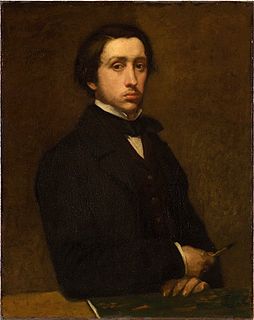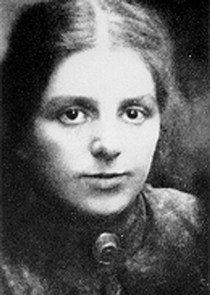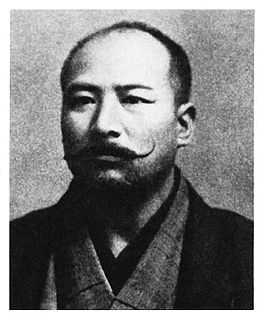A Quote by Eugene Delacroix
The living model never answers well the idea or impressions the painter wishes to express; one must, therefore, learn to do without one, and for that, you must acquire facility, furnish one's memory to the point of infinitude, and make numerous drawings after the old masters.
Related Quotes
The artist does not draw what he sees, but what he must make others see. Only when he no longer knows what he is doing does the painter do good things. A picture is first of all a product of the imagination of the artist; it must never be a copy. If then two or three natural accents can be added, obviously no harm is done. The air we see in the paintings of the old masters is never the air we breathe.
Living without expectations is hard but, when you can do it, good. Living without hope is harder, and that is bad. You have got to have hope, and you must'nt shirk it. Love, after all, hopeth all things. But maybe you must learn, and it is hard learning, not to hope out loud, especially for other people. You must not let your hope turn into expectation.
It is impossible to devise an experiment without a preconceived idea; devising an experiment, we said, is putting a question; we never conceive a question without an idea which invites an answer. I consider it, therefore, an absolute principle that experiments must always be devised in view of a preconceived idea, no matter if the idea be not very clear nor very well defined.
A man who wishes to make a profession of goodness in everything must necessarily come to grief among so many who are not good. Therefore, it is necessary for a prince, who wishes to maintain himself, to learn how not to be good, and to use this knowledge and not use it according to the necessity of the case.
The Judo pupil, therefore, must cultivate his mind; he must never feel fear, never lose his temper, never be off his guard; but he must be cool and calm, though not absent-minded; he must act as quick as thought, according to circumstances. He must also be dexterous as well as bold both in attack and in defense.
One must believe that every living thing whatsoever must change insensibly in its organization and in its form... One must therefore never expect to find among living species all those which are found in the fossil state, and yet one may not assume that any species has really been lost or rendered extinct.
Whoever lives for poetry must read everything. How often has the light of a new idea sprung for me from a simple brochure! When one allows himself to be animated by new images, he discovers iridescence in the images of old books. Poetic ages unite in a living memory. The new age awakens the old. The old age comes to live again in the new. Poetry is never as unified as when it diversifies.
To learn to see- to accustom the eye to calmness, to patience, and to allow things to come up to it; to defer judgment, and to acquire the habit of approaching and grasping an individual case from all sides. This is the first preparatory schooling of intellectuality. One must not respond immediately to a stimulus; one must acquire a command of the obstructing and isolating instincts.
Nobody is made anything by hearing of rules, or laying them up in his memory; practice must settle the habit of doing, without reflecting on the rule; and you may as well hope to make a good painter, or musician, extempore, by a lecture and instruction in the arts of music and painting, as a coherent thinker, or a strict reasoner, by a set of rules, showing him wherein right reasoning consists.







































